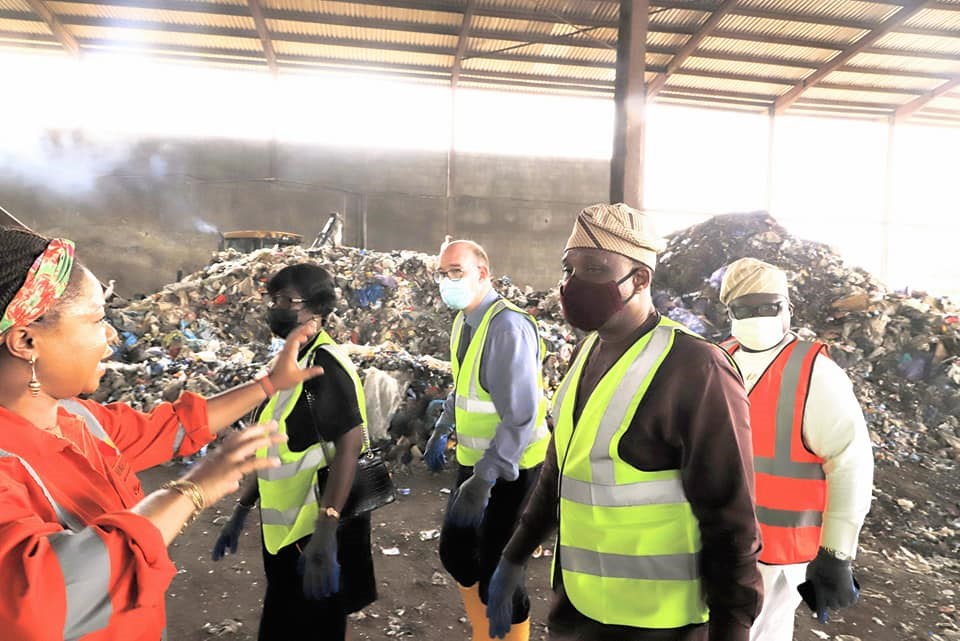There are no products in your shopping cart.
| 0 Items | £0.00 |


BRITAIN'S government has approved the investing of $150m in a new waste-to-energy plant in Lagos State as part of an ongoing collaborate programme between the country and Nigeria aimed at exploiting the commercial benefits of clean energy.
Nigeria is a signatory to the 2015 Paris Agreement on Climate Change which commits the nation to limiting global warming and achieving a climate neutral world by mid-century. Signed by 196 countries, the agreements commits them to generating more power from clean energy sources such as solar, wind and biofuels.
Despite pledging to help cut greenhouse gases, Nigeria has done very little practically, as she has not moved towards the mass-use of clean energy, has no electric car programme and is still heavily dependent on fossil fuels. In addition, Nigeria faces a sever power generation problem as the country only generates about 7,000MW of electricity, out of the 50,000MW required and even then, only about 4,000MW is distributed.
Earlier this month, vice president Professor Yemi Osinbajo pledged that the shortfall will be covered by reverting to renewables, mainly solar power. It now appears that the UK is backing these plans with investment as this latest plan involves building a facility in Lagos that will have a daily capacity to process 2.5 tonnes of waste.
Ben Llewellyn-Jones, the deputy British high commissioner to Nigeria, pledged to support the investment while speaking at the Igando refuse dumpsite in Lagos State. He was given a tour of the facility by officials from West Africa ENRG, the British-owned private landfill firm in the company of Tunji Bello, the Lagos State commissioner for the environment and water resources.
Mr Llewellyn-Jones stressed that although some people are sceptical about Nigeria’s investment and outlook, waste management offers a huge opportunity. He added that it is outstanding what is being achieved using British technology, finance and Nigerian drive and expertise to create something special that is going to grow.
“We will help you and it is a real opportunity here as it is being demonstrated today. There are opportunities to grow beyond what is being achieved now which is so fantastic,” Mr Llewellyn-Jones added.
Mr Bello said the quest of West Africa ENRG to move from waste to wealth and establishing the first waste-to-energy facility speaks volumes about the conducive business atmosphere in Lagos. He added that the company came to Lagos in 2014 and unveiled its first waste conversion plant in 2015.
Mr Bello said: “There were some intervals of difficulties that we have now successfully overcome and now, we have been able to restore all that they started with. They have also improved a lot of things as you must have observed during the inspection today there are a lot of conversion processes from waste to plastics, rubber, cans and bottles.
“Lagos has always been a Mecca of investments. What we just need to do is to make sure that infrastructural developments are accelerated and substantial progress is being made in that regard, as we have the roads, water and other infrastructural facilities ready.”
Paul O’Callaghan, the West Africa ENRG chief executive, said his organisation plans to invest about $125m to 150m to build a 25 megawatts waste-to-energy facility that would process 2.5 tonnes of waste daily. He added that the new project means the private sector participants will move from houses to the waste to energy facility and within 15min will be back on the streets collecting waste, thus creating a better economy and a quicker and cleaner Lagos State.
Mr O’Callaghan added: “At the moment, it takes three to four hours in the dry season to tip waste at the open landfill site and in the rainy season that takes as much as 24 hours depending on the weather. We are committing to under 30 minutes and aiming for 15 minutes turnaround time.”